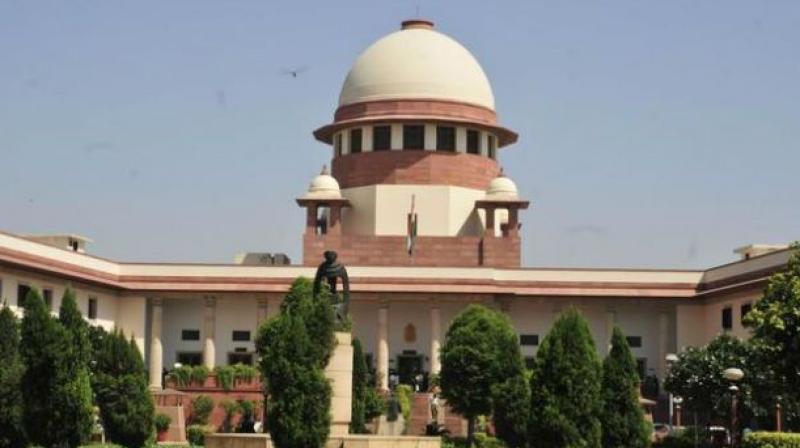Quicker trials in cases on netas a good start

The Supreme Court’s direction to the Union government on Wednesday to constitute special courts on the lines of fast-track courts to try criminal cases involving politicians is something of a landmark. This will meet the country’s long-felt need to cleanse politics — and be a true signifier of a “Swachchh Bharat” — which appears to be the principal lubricant for major avenues of corruption in India. The apprehension, however, is that the political class a whole — whose stage consists of Parliament and the state legislatures — may seek to scuttle the move. In the court, the additional solicitor-general sought to pass the buck to the states for setting up special courts, and was pulled up by the bench for doing so before the Supreme Court accepted the ASG’s request to grant the Centre six weeks to submit details of the scheme.
Setting up special courts will require expenditure and the government will have to find the way to channel funds for this key purpose. It is to be seen with what sense of urgency the executive pursues the court’s directive. The bench was hearing a petition to impose lifetime bans on convicted politicians from contesting elections. In the course of proceedings, it made a reference to a report given to it according to which 1,581 criminal cases were pending against legislators at various levels at the time of filing of nominations for the 2014 general election. The court wanted to know from the government the status of these cases. The court also recalled a March 10, 2014 order issued by it directing that the cases against legislators be expedited and disposed of within a year. It asked the government what had happened in this matter, and whether any more criminal cases against MLAs or MPs had been lodged since 2014. But the answer seems clear enough — it is doubtful that anything very much has happened. It remains to be seen how the court will react if its 2010 directive has not been followed with any degree of seriousness.
The Election Commission has also informed the Supreme Court that it is in favour of a lifetime ban on convicted politicians from contesting polls. The idea of restraining criminality flowing from this sentiment is laudable, but the matter appears to deserve careful consideration. To elaborate, will a legislator convicted for murder or rape be stopped from fighting future polls, and one convicted for a more minor criminal transgression be given the same treatment? Though it may be difficult to have a foolproof standard, it would be a big help if political parties tried to ensure that dubious people, regardless of the issue of conviction by a court, were not given a party ticket. In all areas, people know who the funny bunch are.

